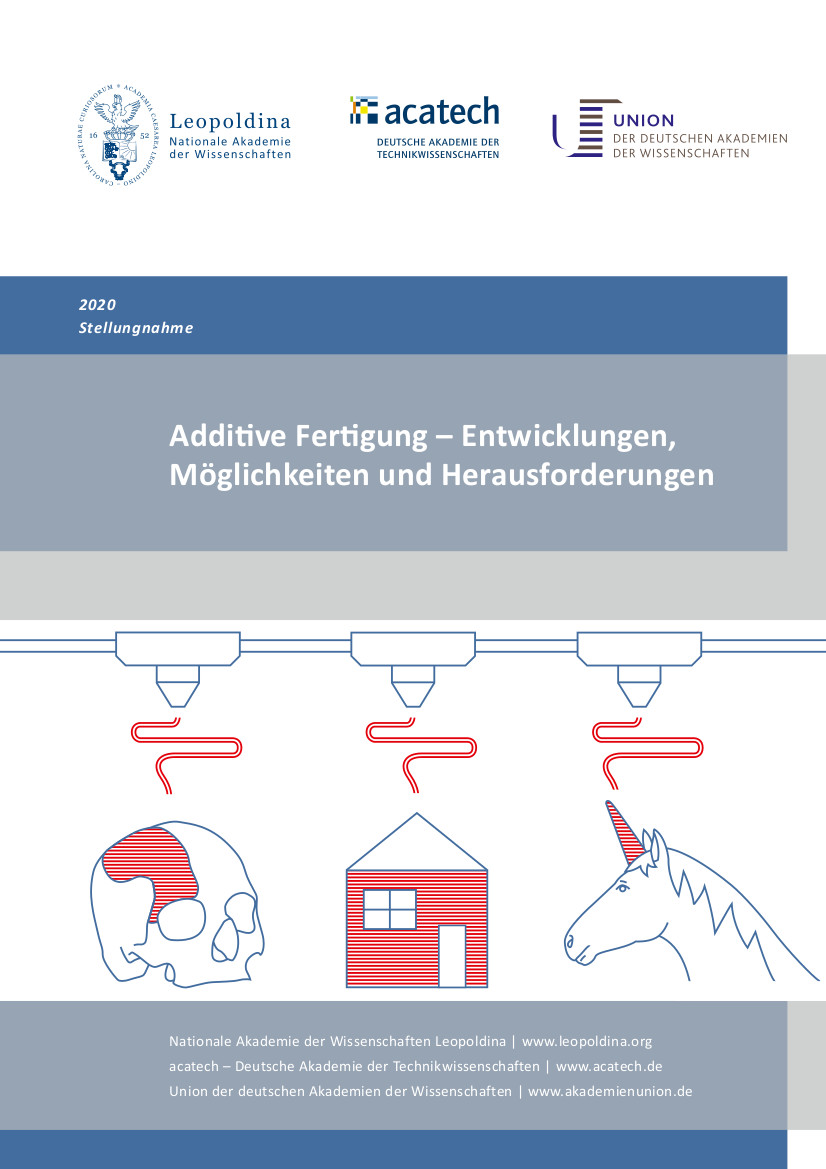Paper on 3D printing: Technology assessment is needed
Additive manufacturing, usually referred to as 3D printing, is used privately, but especially also industrially. Here, the application areas range from construction, medicine, and cultural heritage to food production.
Additive manufacturing can be used in many ways
Where the manifold potentials of technology are, what its dissemination means for society, what should be further researched, and what options for action politics has, is discussed in a statement published by the National Academy of Sciences Leopoldina in cooperation with the National Academy of Science and Engineering acatech and the Union of the German Academies of Sciences and Humanities. The Leopoldina Working Group “Additive Manufacturing” of which the philosopher of science and technology Rafaela Hillerbrand from ITAS is a member, is largely responsible for the paper.
Need for accompanying research
While the study sees opportunities in the cheaper and more sustainable manufacture of products with improved properties, it also points to the need for further research. Since additive manufacturing affects many areas of society, further research on the acceptance and acceptability of additive manufacturing and an accompanying technology assessment are particularly needed.
The researchers also recommend developing intuitively operated software to expand the range of users of the processes. New quality standards and test procedures for product safety are also needed. In addition, engineers and skilled workers need to be better qualified to handle the new technology.
Already in 2016, the academies, led by acatech, had issued a statement on additive manufacturing, which focused primarily on industrial production, value-added networks, and business models. (23.06.2020)
Bibliographic data:
Nationale Akademie der Wissenschaften Leopoldina, Union der deutschen Akademien der Wissenschaften, acatech – Deutsche Akademie der Technikwissenschaften (Hg.)
Additive Fertigung. Entwicklungen, Möglichkeiten und Herausforderungen. Halle (Saale) 2020, 89 S., ISBN: 978-3-8047-3636-8.
PDF-Download (Open Access)


